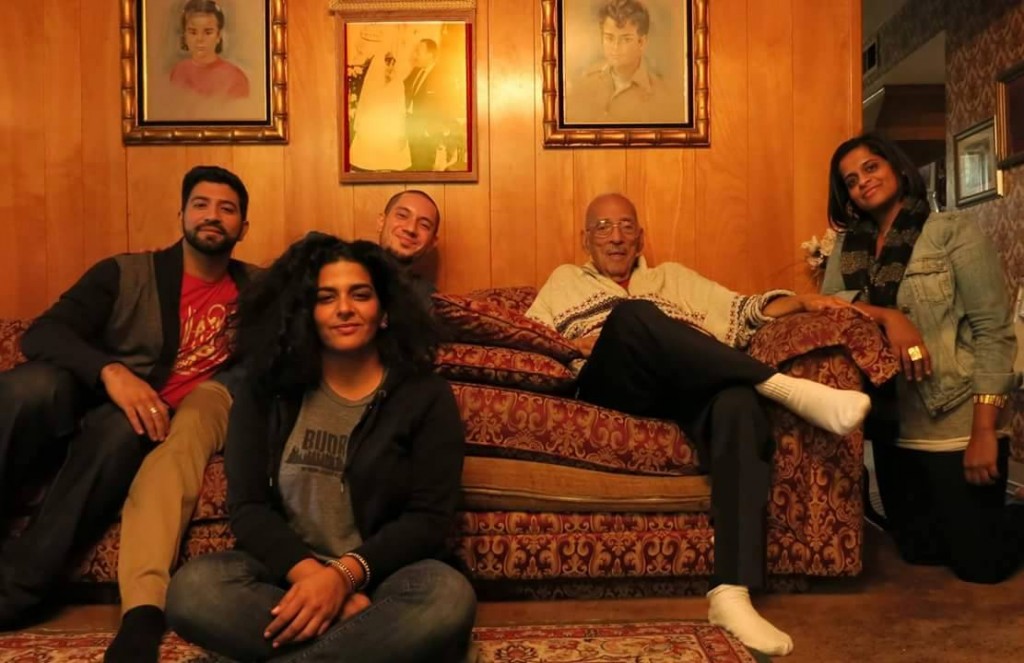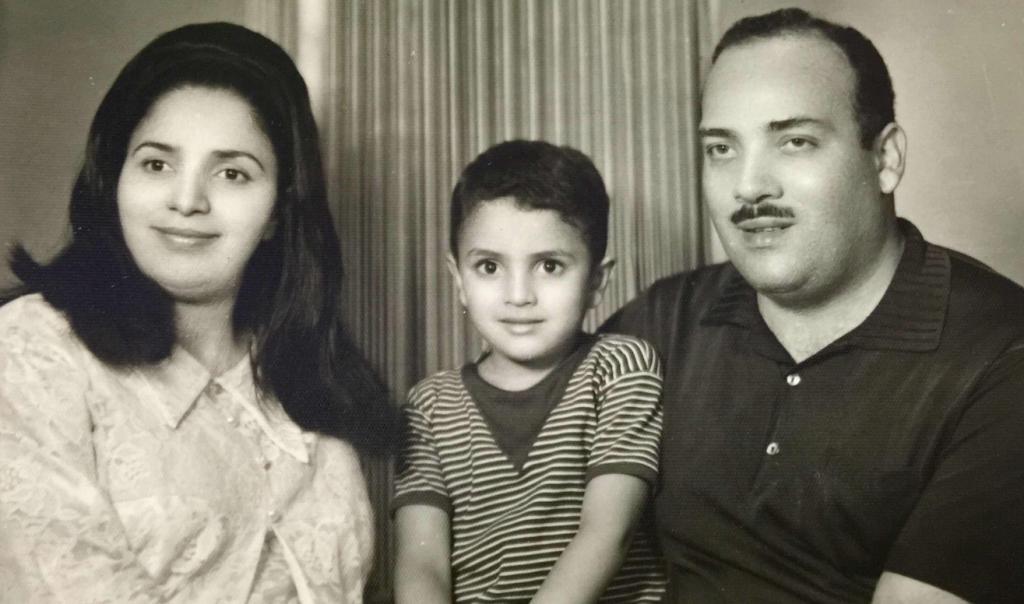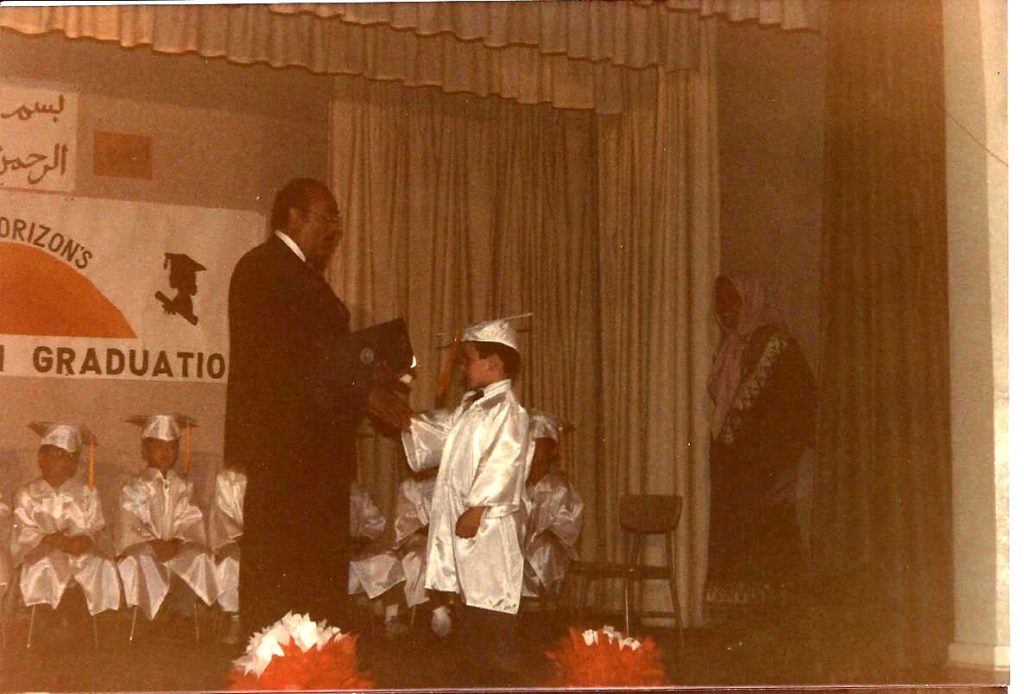Maher Hathout, a servant of God who spent his life spreading an approach to Islam rooted in curiosity, critical thinking, and compassion, died early Saturday morning in Los Angeles, California. He turned 79 on Friday, January 1, one day before he passed. He was a tireless pioneer in the American Muslim community who carried a bold vision, built strong institutions, invested in the next generation of leaders and inspired people nearly everywhere he went with his message. His enduring legacy will be marked by his efforts to shape an understanding of Islam in America that was accessible to every person, regardless of whether they were Muslim or not as well as his tireless commitment to investing in young leaders.
Dedicated to teaching Islam through the Quranic lens of critical thinking, Dr. Hathout empowered thousands from multiple generations to embrace their American Muslim identity and work to be viewed as a respected and contributing part of our country’s diverse fabric.
A key attribute to his mentorship relied upon listening and embracing young people and accepting their questioning spirit without judgement. Aisha Elmasri, now in her mid-20s, posted on Dr. Hathout’s Facebook wall in his memory after his passing: “I remember the day I sat in your living room and blurted out, ‘Sometimes I question God’s existence. Sometimes I can’t fathom the idea of it all.’ You responded: ‘Good. That means you’re thinking properly. You’re asking questions. It’s a sign of your faith.’ You were always so reassuring, loving and receptive.”
He was a unique and critical voice of Islam who offered a constructive perspective on spiritual, social, theological and political issues. He was a passionate advocate for taking pride as American Muslims, engaging ‘the other’ no matter how large the differences, embracing women’s involvement in the leadership and life of the community, and instilling a community-wide attitude of active citizenship.
His Formative Years
Born in Egypt in 1936, Dr. Hathout exhibited curiosity and passion for social justice early in life. His mother was active in the political struggle against British colonialism and his father taught him the beauty of poetry and art. His older brother Dr. Hassan Hathout was ten years his senior, and the young Maher admired his dedication to Islam and justice. They often communicated in letters filled with poetry and politics and faith. Poetry, art and music became a lifelong love, as illustrated by his habit of reciting poetry in daily conversation to make his point.
In the 1950s, Dr. Hathout was active in student campaigns to oppose the British occupation and military dictatorship in Egypt and was subsequently imprisoned for nearly five years in some of Egypt’s most brutal jails. It was during this time that he made some of his closest friendships, became a devoted student of the Quran, and developed into a prolific poet. It was also this time spent studying and debating political, theological and social issues with fellow political prisoners that solidified his resolve to work for freedom and justice for all humanity.
He met his wife of more than 50 years, Ragaa, in medical school. In one of their classes, she stood up and walked out after their professor took an unfair action against a fellow student, and he admired her willingness to stand up for her convictions. She would become his lifelong companion, defender and partner in community building. They had two children, Gasser and Samer, before they relocated to Kuwait seeking to escape the increasingly suffocating climate they experienced in Egypt after his release.
Discovering America, Defining Identity
In 1971, the Hathouts moved to Buffalo, New York where Dr. Hathout served as a cardiologist and became an active member of the local Muslim community. In 1977, he moved to Los Angeles and quickly became immersed in a defining period of growth for the new Islamic Center of Southern California (ICSC). His brother Hassan’s family later joined him and they quickly rose to the leadership circle of the community.
One of the most progressive mosques in the country — a woman served on its board of directors in 1952 — the Islamic Center became a vehicle for a vision of Islam in America rooted in Dr. Hathout’s definition of home: “Home is not where my grandparents are buried but where my grandchildren will be raised.”
“He broke from traditions that became cultural baggage from foreign countries,” MPAC Co-Founder and President Salam Al-Marayati told the Huffington Post. “Yet he based his views on traditional texts such as the Quran and the authenticated traditions of Prophet Muhammad. He was religious in his observance and religious in his social interactions and used the ethics of his faith to have a progressive outlook for American Muslims.”

meeting at the Islamic Center of Southern California with Salam Al-Marayati (left) and Maher Hathout and other leaders
With this grounding, Dr. Hathout worked with his peers to bring Quranic values to life in the diverse community they served. They established English as the official language of the jumma khutbas (Friday prayer sermons), a departure from the then dominant practice of delivering the address in Arabic with little or no translation. The mosque was also non-sectarian, refusing to adopt a Sunni, Shia or any other denominational persuasion while welcoming all to practice per their customs. The center also promoted gender equality, encouraging women to serve on the board and community leadership. It also left it to women to choose whether to cover their hair when they entered the mosque for non-prayer programs.
Challenging the Status Quo, Again and Again
He believed that diversity was God’s will and racism was satanic (Satan was the original racist, he’d say, because he declared that being made out of fire was better than being made out of clay). At his memorial hosted by the Islamic Center, his longtime colleague Imam Siddiq Saafir of the predominantly African American Masjid Ibaadullah said, “He really embraced us like no Muslim has ever embraced us. He had no racism. He accepted you for who you were and he respected all humanity.”
Dr. Hathout believed that Islam taught free choice in all things, including religion, and defended those who insulted Islam, the Quran and Prophet Muhammad. In the late 1980s, when author Salman Rushdie was threatened with death in a fatwa issued against him by Ayatollah Khomeini for what he saw as defamation of the Prophet, Dr. Hathout came out publicly against the fatwa and faced immense backlash from within the Muslim community, arguing that Rushdie’s writing was crude and insulting but should neither be banned nor condemned, let alone punished by death. He had a right to free speech according to the essence of Islamic law and any Muslim had that same right to express condemnation of Rushdie’s writings. As a result of his position on this issue, Dr. Hathout would find the tires of his car slashed by disgruntled Muslims.
It was just one example of countless episodes where he would stand up for core Islamic values he cherished and maintained his position despite heavy criticism. His positions were often deemed ahead of their time, to which he would reply that was the role for leaders, to pioneer and create progress.
Building Institutions, Creating Leaders
In today’s terms, he was a serial social entrepreneur who identified needs, brought people together, motivated and guided them, and then set them loose to improve the world.
Throughout the late 1970s and 1980s, he and the ICSC launched a series of pioneering projects and organizations, including the first-ever co-ed Muslim Youth Group, the Islamic Information Service that produced a nationally-televised weekly program on Islam, The Minaret magazine, the New Horizon School system, and the Muslim Public Affairs Council. The New Horizon School campus in Pasadena, California is the first private Muslim school to be awarded Blue Ribbon status by the Department of Education. MPAC started as the public relations committee of the Islamic Center in 1986 and spun off into a national organization two years later. It grew into a leading American Muslim voice for expanding the role of Muslims in politics, public affairs, and media.

By the late 1980s, the Los Angeles Muslim community had grown substantially enough to hold Eid prayers at the Convention Center rather than its Koreatown location.
He trained multiple generations of leaders in the Quran’s teachings, organizing community affairs and engaging fellow citizens. Some of those young people he mentored have now risen to their own positions of influence in public affairs, in national media outlets, in the entertainment industry, in the legal profession, as artists, as community organizers, including Shahed Amanullah, who founded altmuslim and zabihah.com and worked for the State Department, Nadia Roumani, co-founder and director of the American Muslim Civic Leadership Institute (AMCLI), and Dr. Yasser Aman, founding president and CEO of the UMMA Community Health Clinic.
Building an Interfaith Network
Dr. Hathout was also among the pioneers of interfaith engagement within the American Muslim community famously saying, “God is too big for one religion to claim Him.” He engaged with a broad spectrum of religious leaders in Los Angeles, and helped put the growing local community on the map of the city’s and nation’s rich diversity of faith communities. He was the first Muslim chairman of the Los Angeles Interfaith Council and became one of the most influential American Muslims on the national landscape of faith leaders.
He developed close camaraderie with a number of prominent faith leaders, including Rabbi Alfred Wolf, Reverand George Regas, and Rabbi Leonard Beerman. He helped found the Religious Coalition Against War in the Persian Gulf with Regas and Beerman in 1991, and the Abrahamic Faiths Peacemaking Initiative following the tragedy of 9/11 and subsequent U.S. wars.
After learning that Dr. Hathout was ill last year, Pastor Rick Warren of Saddleback Church released a video message describing Dr. Hathout as a peacemaker and a bridge builder. “Even as he’s facing this battle with cancer, he’s striving to bring peace and bring different sides together,” says Warren. “When I first heard he was ill, I wept because this is a man who has profoundly influenced not just American Muslims, but America, for good and for greatness. We appreciate your peacebuilding, your wisdom, your commitment to beauty, to all that is good in the world and we thank God for you.”
“Above all, I’ll remember Dr. Hathout for his constant pursuit of peace and understanding through dialogue,” Mayor Eric Garcetti shared in post on Facebook this week. “Even when anger, mistrust, and resentment threatened to tear communities apart, Dr. Hathout would continue to engage, continue to listen, and continue to treat others with respect and love.”
Spreading the Message
His cumulative experience and great wisdom was valued both by elected officials whom he met with and news reporters who valued his intelligence and his succinct and pointed way with words. He met with Presidents George H.W. Bush and Clinton, Pope John Paul II among others. He met with members of Congress and was invited to address the State Department. In 2000, Dr. Hathout was the first American Muslim to deliver the invocation at the Democratic National Convention.
And in the media, he appeared on major media outlets as a guest addressing current issues related to Islam, on CNN, the BBC, Al-Jazeera, ABC, and Fox News. His op-eds have appeared in major newspapers worldwide. Each time, he delivered his message with his signature mixture of wit and wisdom that connected with audiences nationwide. (See for yourself on Youtube.)
In recent years, he poured more energy into reaching broader audiences through a variety of mediums. Dr. Hathout wrote extensively on Islam, human rights, democracy, and extremism. He is the author of three books – “Jihad vs. Terrorism” (2002), “In Pursuit of Justice: The Jurisprudence of Human Rights in Islam” (2006), and “Islam 2.0: Conversations with New Muslim Generations” (2009).
He launched a bi-weekly podcast called Straight Talk, in which he discussed a broad range of issues with diverse guests on topics related to American Muslims, including art, spirituality, women, extremism, identity, love and relationships, abuse, and reform. The conversations capture his spontaneity, humor and the faith that drove him. He then released a series of videos called Islam: Questions You Were Afraid to Ask, featuring him answering questions about Islam from people of diverse backgrounds on hot topics like dating, women’s rights, homosexuality and ideological violence.
The Last Year
It was in October 2013 that he was diagnosed with advanced liver cancer. Despite his illness, Dr. Hathout continued to work for the causes he believed in. He spoke at MPAC’s annual conventions, delivered khutbas, recorded episodes of his podcast, and continued to advise the Islamic Center and MPAC.
Last fall, he issued a Declaration Against Extremism, in which he defined the dangers of extremism and issued a clarion call for action. The Declaration challenges Muslims to respond to all forms of extremism through engagement, positive articulations of theology and a willingness to stand up to and push back against those voices who use the garb of religious authority to further their own political and social agendas.
One year ago, in January 2014, a group of young artists and students of Dr. Hathout banded together to bring his poetry to life. What resulted was six packed performances of “Haram,” a play inspired by his poetry and featuring American Muslim playwrights, actors and artists.

The “Haram” team, (from left) Wesam Nassar, Susu Attar, Omar Chakaki, Dr. Maher Hathout and Samira Idroos
What Does He Leave Behind?
For those who knew him, his prized traits were his razor sharp humor and his attachment to young people. He defined youth as those who look to the future rather than the past, and counted himself among them. Until his final days, he met with many of the young people he continued to mentor and count among his friends. For them, his passing marks the passage of a father, a friend, and a beacon of light, intelligence and humor. He taught them to love God and demonstrate that love by taking pride in their religious and national identity and by actively serving the greater good. He taught them to be critical thinkers and to be compassionate. And now with his passage, he steps back to allow thousands of seeds to blossom and their fruits to show the real face of Islam in all its diversity and splendor and contribution.
At the end of such an extraordinary journey, it is only natural for one to attempt to calculate the value of his efforts. In the twilight of this life, he still asked himself, “What have I accomplished? How could I have done more and been more effective?” It was a jarring thought from a man who dedicated himself full-time to the cause for more than half a century.
On Monday, more than 2,000 people gathered around his gravesite to pray for his soul and to say goodbye. It was more of a reunion of generations who were touched profoundly by Dr. Hathout and the community he helped build, strengthen and sustain. Before the burial took place, his son Dr. Gasser Hathout shared his father’s final words to each of his family members. He urged them to “hold tight to God, family, community and country.”
Maher Hathout lived a life that mattered and he returned to God enveloped by the love and prayers of his family, community, and country. His legacy is in the thousands of people he touched and in those who carry the light he sparked inside each of them. Now it’s our turn to restore the essence of Islam for the world to see, for now and for generations to come.












